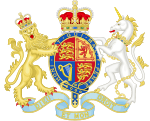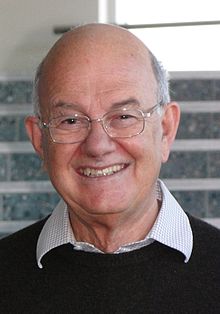- Lord Chief Justice of England and Wales
-
Lord Chief Justice of England and Wales 
The Judiciary of England and WalesStyle The Right Honourable Nominator Judicial Appointments Commission Appointer UK Monarch on recommendation of Prime Minister and Lord Chancellor, who are in turn given recommendations by a selection panel. Inaugural holder Sir Alexander Cockburn Formation 1 November 1875 Website The Judiciary of England and Wales This article is part of the series: Courts of England and Wales Law of England and Wales  Administration
Administration- Ministry of Justice
- Her Majesty's Courts and Tribunals Service
- Judges' Council
Criminal courts- Supreme Court of the United Kingdom
- Court of Appeal
- Lord Chief Justice
- Lord Justice of Appeal
- High Court of Justice
- Crown Court
- Magistrates' Court
- District Judge
- Justice of the Peace/ Lay Magistrates
Criminal prosecutionLegal professionThe Lord Chief Justice of England and Wales is the head of the judiciary and President of the Courts of England and Wales. Historically, he was the second-highest judge of the Courts of England and Wales, after the Lord Chancellor, but that changed as a result of the Constitutional Reform Act 2005, which removed the judicial functions from the office of Lord Chancellor. The Lord Chief Justice is also the presiding judge of the Criminal Division of the Court of Appeal. The first Lord Chief Justice to act as head of the judiciary after the Lord Chancellor relinquished that role was Lord Phillips of Worth Matravers.
Under the Constitutional Reform Act 2005, the Lord Chief Justice is chosen by a specially appointed committee, convened by the Judicial Appointments Commission. The current Lord Chief Justice is Lord Judge, who took over the role on 1 October 2008 following the promotion of Lord Phillips to the position of Senior Law Lord. In Lord Judge's case, Judge is his family's coincidental surname, not an affectation or title.
Until the Constitutional Reform Act 2005 came into force on 3 April 2006, the Lord Chief Justice was also the head of the Queen's Bench Division of the High Court. There is now a separate post of President of the Queen's Bench Division of the High Court, currently held by Sir Anthony May.
Originally, each of the three high common law courts – the King's Bench, the Court of Common Pleas, and the Court of the Exchequer – had its own chief justice. That of the Exchequer Court was styled as the Lord Chief Baron of the Exchequer, and that of the Common Pleas was Chief Justice of the Court of Common Pleas, leaving the head of the King's (or Queen's) Bench to be known simply as the Lord Chief Justice. Although the Court of the King's (or Queen's) Bench had existed since 1234, the title of chief justice was not used until 1268. In the intermediary period, one of the justices would be considered the senior judge, and hold a position similar to that later held by the chief justice. The courts, however, were combined in 1875, creating a single Lord Chief Justice of England.
The suffix "and Wales", now found in statutes and elsewhere, was unilaterally appended by Lord Bingham between 1996 and 2000. There is also a Lord Chief Justice of Northern Ireland. The Lord Chief Justice's equivalent in Scotland is the Lord President of the Court of Session, who also holds the post of Lord Justice-General in the High Court of Justiciary.
Contents
Chief Justices, King's (Queen's) Bench, to 1875
Chief Justices, King's (Queen's) Bench day, month from day, month till remarks William de Raley 1234 1239 Sir Stephen de Segrave 1239 1241 William of York 1241 1247 Henry of Bath 1249 1251 Sir Gilbert of Seagrave 1251 1253 Henry of Bath 1253 1260 Sir William of Wilton 1261 1263 Nicholas de Turri 1265 1267 Sir Robert I of Scotland 1268 6 November 1269 Richard of Staines 6 November 1269 1273 Martin of Littlebury 1273 1274 Ralph de Hengham 1274 1290 Gilbert de Thornton 1290 1296 Sir Roger le Brabazon 1296 March 1316 Sir William Inge (judge) March 1316 15 June 1317 Sir Henry le Scrope 15 June 1317 September 1323 Hervey de Stanton September 1323 21 March 1324 Sir Geoffrey le Scrope 21 March 1324 1 May 1329 Sir Robert de Malberthorp 1 May 1329 28 October 1329 Sir Henry le Scrope 28 October 1329 19 December 1330 Sir Geoffrey le Scrope 19 December 1330 28 March 1332 Sir Richard de Willoughby 28 March 1332 20 September 1332 Sir Geoffrey le Scrope 20 September 1332 10 September 1333 Sir Richard de Willoughby 10 September 1333 1337 Sir Geoffrey le Scrope 1337 October 1338 Sir Richard de Willoughby October 1338 21 July 1340 Sir Robert Parning 21 July 1340 8 January 1341 Sir William Scott 8 January 1341 26 November 1346 Sir William de Thorpe 26 November 1346 26 October 1350 Sir William de Shareshull 26 October 1350 24 May 1361 Sir Henry Green 24 May 1361 29 October 1365 Sir John Knyvet 29 October 1365 15 July 1372 Sir John de Cavendish 15 July 1372 14 June 1381 murdered in the Peasants' Revolt) Sir Robert Tresilian 22 June 1381 31 January 1388 Sir Walter de Cloptone 31 January 1388 15 November 1400 Sir William Gascoigne 15 November 1400 29 March 1413 Sir William Hankeford 29 March 1413 21 January 1424 Sir William Cheyne 21 January 1424 20 January 1439 Sir John Juyn 20 January 1439 13 April 1440 Sir John Hody 13 April 1440 25 January 1442 Sir John Fortescue 25 January 1442 13 May 1461 Sir John Markham 13 May 1461 23 January 1469 Sir Thomas Billing 23 January 1469 7 May 1481 Sir William Hussey 7 May 1481 24 November 1495 Sir John Fineux 24 November 1495 23 January 1526 Sir John Fitz-James 23 January 1526 21 January 1539 Sir Edward Montagu 21 January 1539 9 November 1545 Sir Richard Lyster 9 November 1545 21 March 1552 Sir Roger Cholmeley 21 March 1552 4 October 1553 Sir Thomas Bromley 4 October 1553 11 June 1555 Sir William Portman 11 June 1555 8 May 1557 Sir Edward Saunders 8 May 1557 22 January 1559 Sir Robert Catlyn 22 January 1559 8 November 1574 Sir Christopher Wray 8 November 1574 2 June 1592 Sir John Popham 2 June 1592 25 June 1607 Sir Thomas Fleming 25 June 1607 25 October 1613 Sir Edward Coke 25 October 1613 16 November 1616 Sir Henry Montagu 16 November 1616 29 January 1621 Sir James Ley 29 January 1621 26 January 1625 Sir Ranulph Crewe 26 January 1625 5 February 1627 Sir Nicholas Hyde 5 February 1627 24 October 1631 Sir Thomas Richardson 24 October 1631 4 February 1635 died in office Sir John Brampston 14 April 1635 31 October 1642 Sir Robert Heath 31 October 1642 October 1645 Sir Henry Rolle 12 October 1648 15 June 1655 John Glynne 15 June 1655 17 January 1660 Sir Richard Newdigate 17 January 1660 1 October 1660 Sir Robert Foster 1 October 1660 19 October 1663 Sir Robert Hyde 19 October 1663 21 November 1665 Sir John Kelynge 21 November 1665 18 May 1671 Sir Matthew Hale 18 May 1671 12 April 1676 Sir Richard Raynsford 12 April 1676 31 May 1678 Sir William Scroggs 31 May 1678 11 April 1681 Sir Francis Pemberton 11 April 1681 28 September 1683 George Jeffreys, 1st Baron Jeffreys 28 September 1683 23 October 1685 Sir Edward Herbert 23 October 1685 22 April 1687 Sir Robert Wright 22 April 1687 17 April 1689 Sir John Holt 17 April 1689 5 March 1710 Thomas Parker, 1st Baron Parker 11 March 1710 15 May 1718 Sir John Pratt 15 May 1718 2 March 1725 Sir Robert Raymond 2 March 1725 31 October 1733 Philip Yorke, 1st Baron Hardwicke 31 October 1733 8 June 1737 Sir William Lee 8 June 1737 2 May 1754 Sir Dudley Ryder 2 May 1754 8 November 1756 William Murray, 1st Earl of Mansfield 8 November 1756 4 June 1788 Earl of Mansfield from 1776 Lloyd Kenyon, 1st Baron Kenyon 4 June 1788 11 April 1802 Edward Law, 1st Baron Ellenborough 11 April 1802 2 November 1818 Charles Abbott, 1st Baron Tenterden 2 November 1818 4 November 1832 Thomas Denman, 1st Baron Denman 4 November 1832 5 March 1850 John Campbell, 1st Baron Campbell of St Andrews 5 March 1850 24 June 1859 Sir Alexander Cockburn, 12th Baronet 24 June 1859 1 November 1875 Lords Chief Justice of England (later England and Wales), 1875–present
- Sir Alexander Cockburn (1 November 1875 – 20 November 1880) (died in office)
- Lord Coleridge (29 November 1880 – 14 June 1894) (died in office)
- Lord Russell of Killowen (11 July 1894 – 10 August 1900) (died in office)
- Viscount Alverstone (24 October 1900 – 21 October 1913)
- The Earl of Reading (21 October 1913 – 8 March 1921)
- Lord Trevethin (15 April 1921 – 2 March 1922)
- Viscount Hewart (8 March 1922 – 12 October 1940)
- Viscount Caldecote (14 October 1940 – 23 January 1946) (previously Lord Chancellor)
- Lord Goddard (23 January 1946 – 29 September 1958)
- The Lord Parker of Waddington (29 September 1958 – 20 April 1971)
- Lord Widgery (20 April 1971 – 15 April 1980)
- Lord Lane (15 April 1980 – 27 April 1992)
- Lord Taylor of Gosforth (27 April 1992 -4 June 1996)
- Lord Bingham of Cornhill (4 June 1996 – 6 June 2000)
- Lord Woolf (6 June 2000 – 30 September 2005)
- Lord Phillips of Worth Matravers (30 September 2005 – 1 October 2008)
- Lord Judge (1 October 2008 – )
References
Bibliography
- Campbell, John (1874), Lives of the Chief Justices of England, in four volumes (two additional volumes were a "Continuation by Sir Joseph Arnould - Late Judge of the High Court of Bombay"), 3rd ed. London, John Murray 1874.
External links
Categories:- English judges
- Judiciary of England and Wales
- Lists of judges in the United Kingdom
- Lords Chief Justice of England and Wales
- Court of Appeal of England and Wales
Wikimedia Foundation. 2010.

